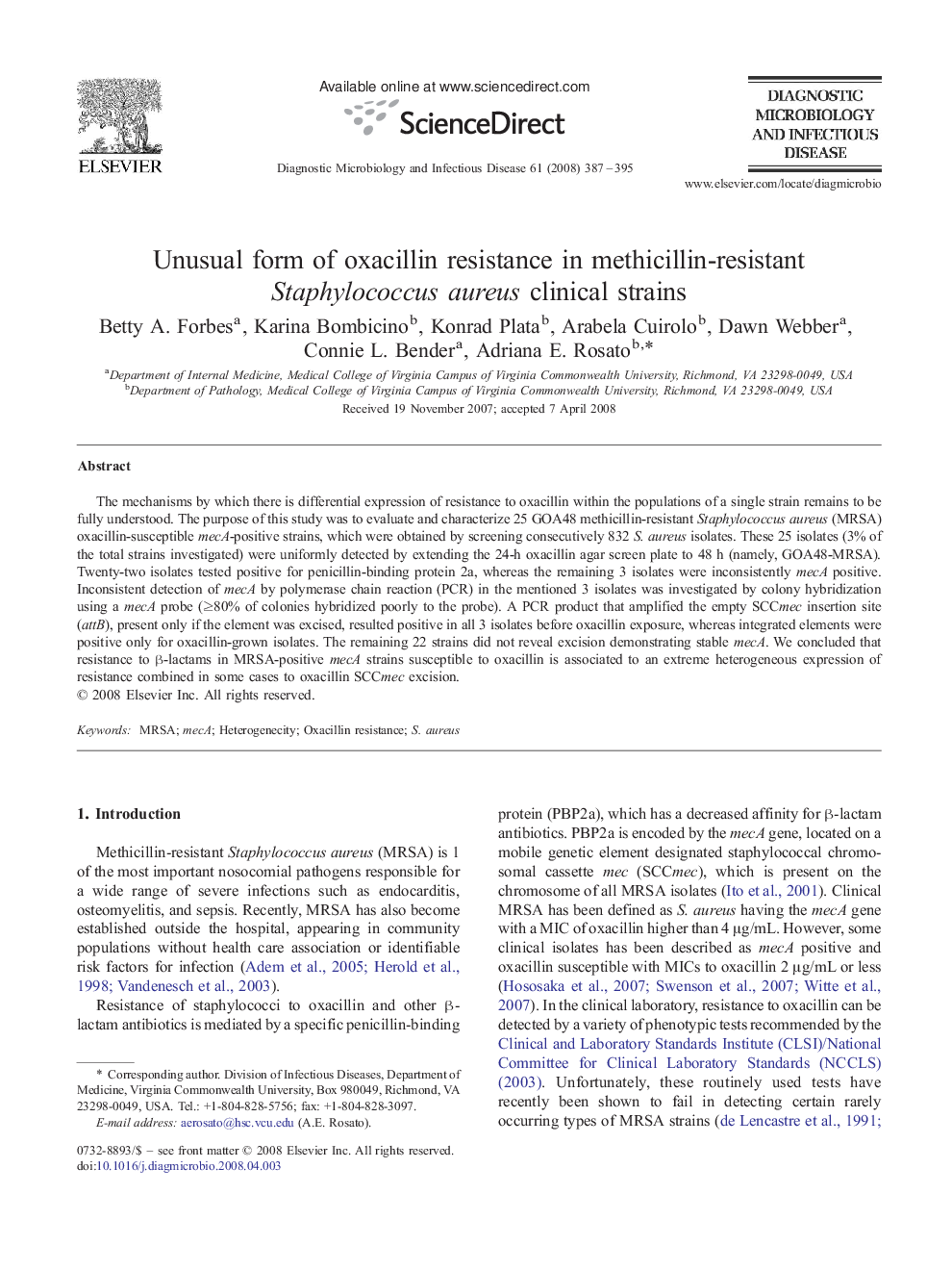| Article ID | Journal | Published Year | Pages | File Type |
|---|---|---|---|---|
| 3347916 | Diagnostic Microbiology and Infectious Disease | 2008 | 9 Pages |
The mechanisms by which there is differential expression of resistance to oxacillin within the populations of a single strain remains to be fully understood. The purpose of this study was to evaluate and characterize 25 GOA48 methicillin-resistant Staphylococcus aureus (MRSA) oxacillin-susceptible mecA-positive strains, which were obtained by screening consecutively 832 S. aureus isolates. These 25 isolates (3% of the total strains investigated) were uniformly detected by extending the 24-h oxacillin agar screen plate to 48 h (namely, GOA48-MRSA). Twenty-two isolates tested positive for penicillin-binding protein 2a, whereas the remaining 3 isolates were inconsistently mecA positive. Inconsistent detection of mecA by polymerase chain reaction (PCR) in the mentioned 3 isolates was investigated by colony hybridization using a mecA probe (≥80% of colonies hybridized poorly to the probe). A PCR product that amplified the empty SCCmec insertion site (attB), present only if the element was excised, resulted positive in all 3 isolates before oxacillin exposure, whereas integrated elements were positive only for oxacillin-grown isolates. The remaining 22 strains did not reveal excision demonstrating stable mecA. We concluded that resistance to β-lactams in MRSA-positive mecA strains susceptible to oxacillin is associated to an extreme heterogeneous expression of resistance combined in some cases to oxacillin SCCmec excision.
